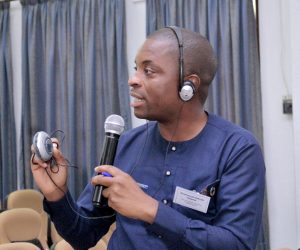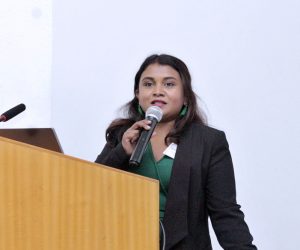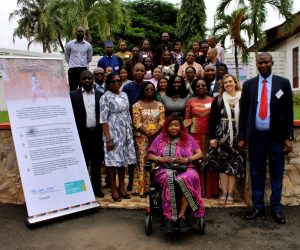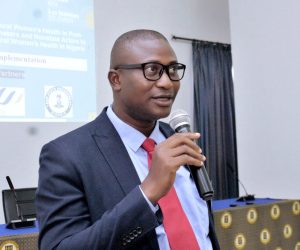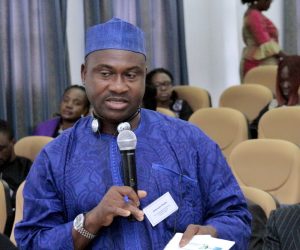Experts and research teams from across West Africa and beyond convened in Accra for the West Africa Regional Workshop, held from August 8-9, 2023, under the “Women RISE Initiative.” The workshop, jointly organized by the African Population and Health Research Center (APHRC), the International Development Research Centre (IDRC), and the Centre for Biodiversity Conservation Research (CBCR) at the University of Ghana, brought together leading voices to discuss how women’s work and health intersect in the context of recovery from the COVID-19 pandemic.
The Women RISE Initiative is dedicated to supporting action-oriented, gender-transformative research that explores the effects of COVID-19 on women’s health, particularly focusing on how their paid and unpaid labor intersects with the pandemic’s socio-economic impacts. Researchers and project teams from Ghana, Nigeria, Burkina Faso, Benin, Guinea, and South Africa, who are recipients of the IDRC Women RISE Project Grant, gathered to share insights, learn from peers, and explore collaborative research opportunities.
“This workshop provided an exceptional opportunity for sharing knowledge, strengthening networks, and fostering research that promotes gender equity in post-pandemic recovery,” said Prof. Yaa Ntiamoa-Baidu, Chair of CBCR and project lead for the Ghanaian Women RISE research team. “The insights shared here will not only inform future research but also help shape policies that improve the health and economic well-being of women who are most affected by the pandemic.”
Workshop Highlights:
- Research Presentations: Day one of the workshop began with in-depth presentations from seven research teams, each exploring unique aspects of how the COVID-19 pandemic affected women across different sectors. From the socio-economic vulnerabilities of female bushmeat traders in Ghana to rural women’s health in post-pandemic Nigeria, each presentation offered powerful insights into how gender inequality has intensified during and after COVID-19. The lively discussions that followed showcased the diversity of perspectives across regions, reinforcing the need for gender-sensitive policies and inclusive health systems.
- Gender and Research Methodologies: One of the standout sessions, led by Dr. Lydia Namatende-Sakwa, focused on integrating gender perspectives into research methodologies. Her presentation on qualitative gender data collection and processing emphasized the importance of using gender-responsive frameworks to ensure research outcomes reflect the lived experiences of women. This was followed by group discussions, allowing teams to reflect on their experiences and refine their approaches to mainstreaming gender in their respective projects.
- Knowledge Translation and Policy Engagement: Day two centered on policy engagement and knowledge translation strategies, a critical component for research to impact real-world change. Lynette Kamau of APHRC delivered a compelling presentation on crafting effective messages for decision-makers, providing practical tools for the research teams to communicate their findings in clear, relevant, and actionable ways. Teams presented their knowledge translation and engagement plans, receiving feedback on how to enhance the impact of their work.
- Building Collaborative Networks: In a final session, participants explored collaboration opportunities through structured networking sessions, sharing strategies on how to develop policy briefs and create impactful partnerships across regions. These discussions underscored the importance of collective action to address the complex, multi-layered challenges faced by women during pandemic recovery.
Looking Ahead:
The workshop concluded with reflections on the next steps, with participants co-developing strategies to guide the remainder of their research projects. As Prof. Ntiamoa-Baidu remarked, “The true power of this initiative lies not only in the research being conducted but in the partnerships being built. Together, we can push forward gender-transformative solutions that will ensure a more equitable and resilient future for women.”
The IDRC and APHRC reiterated their continued commitment to supporting gender-transformative research through the Women RISE Initiative and emphasized the importance of translating research into policy to ensure tangible benefits for women and vulnerable communities across Africa.


